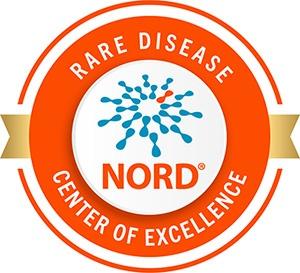Pre-term Lambs in Artificial Womb Show Brain Development Closer to Late-Pre-Term Lamb Cohort
This study by Jennifer Cohen, MD, is about an artificial womb (called EXTEND: extra-uterine environment for newborn development) used after a pre-term birth in a cohort of lambs and its effects on improving brain development by letting the brain (and other organs) mature in a womb-like environment. The study showed that the brains of the lambs that used the artificial womb (EXTEND) for 20-22 days after their pre-term birth were closer to the brain development of the late-pre-term lamb cohort.
Human Avatars Help Make Gene Therapy More Effective
Karl-Dimiter Bissig, MD, PhD, and team developed a new experimental humanized animal model that mimics human responses better than previous models. This new technology could help improve the efficiency of clinical trials for a wide range of drug treatments and diseases.
Finding a path through the land of the undiagnosed
As many as 30 million Americans live with a rare or undiagnosed disease. Many spend years seeing doctors, undergoing tests, and scouring the internet in a desperate search for answers. Vandana Shashi, MD, professor of pediatrics in the Division of Medical Genetics, and the Undiagnosed Diseases Network (UDN) clinical site at Duke give these patients a new avenue of hope.
My View: Debbie Antonelli
Debbie Antonelli discusses how her son Frankie's experience at the Duke Down Syndrome Clinic prepared him for college success through the Clemson LIFE program.
Duke Health designated a NORD Rare Disease Center of Excellence
The National Organization for Rare Disorders (NORD) has designated the Duke Health Rare Disease Center as a NORD Rare Disease Center of Excellence.
Genetic Counselor Awareness Day
November 4, 2021 recognizes Genetic Counselor Awareness Day, sponsored by the National Society of Genetic Counselors (nsgc.org).
$8M grant aims to better understand disease mechanisms of schizophrenia
A new $8 million NIH grant seeks to uncover more clues into what genes increase the risk of developing schizophrenia. Greg Crawford, Charles Gersbach, Timothy Reddy, and Raluca Gordân at Duke have teamed up with researchers from UNC Chapel Hill and Yale University to narrow down areas of the genome previously marked relevant to schizophrenia risk.
Multimillion dollar NIH grant creates first Duke Center of Excellence in Genome Science
For the first time at Duke, the National Human Genome Research Institute (NHGRI), part of the National Institutes of Health, is awarding a Center of Excellence in Genome Science (CEGS) grant, to a group of Duke researchers, providing $14 million of research support over five years.








